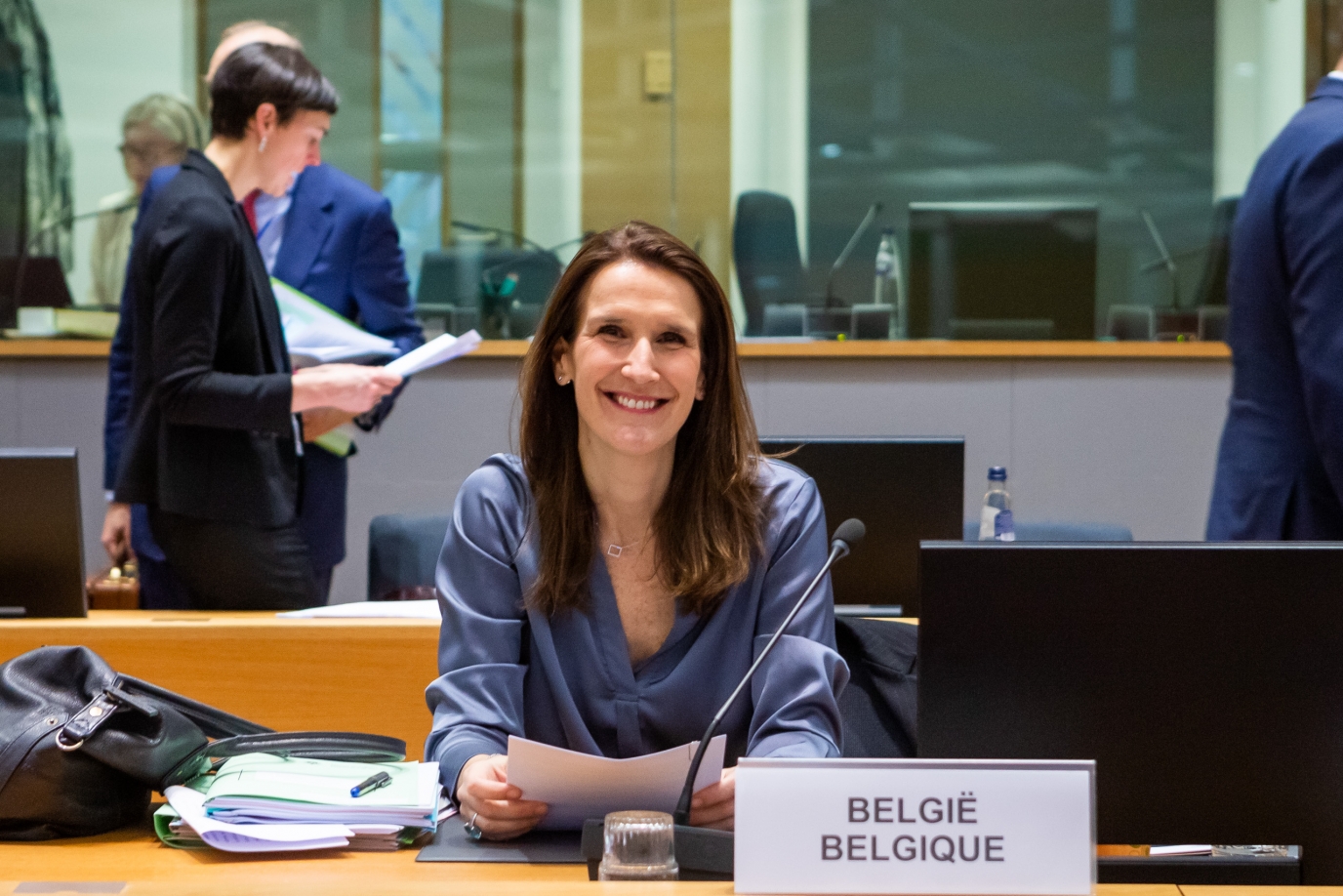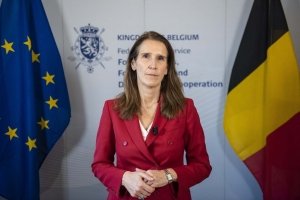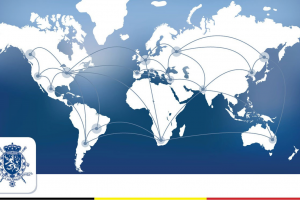Meeting of the Council of Ministers for European Affairs held on 21 March: conclusions
On Monday 21 March, the Deputy Prime Minister and Minister for Foreign Affairs, Sophie Wilmès, and her counterparts met in Brussels for a sixth Foreign Affairs Council (FAC) meeting since the start of the year, primarily dedicated to the war in Ukraine. A joint meeting of Foreign and Defence Ministers also adopted the Strategic Compass.
War in Ukraine
The central theme of this Council was the military aggression by Russia against Ukraine. The European ministers reviewed the latest developments, including the military situation on the ground, the ongoing diplomatic dialogue, the effects of sanctions and the humanitarian aspect of the conflict.
Sophie Wilmès, "War is raging. Humanitarian law is being flouted. Our values and principles are being trampled on. We must continue to express our strongest condemnation of the tragedy unfolding in Ukraine. We must do so in every possible forum and using every means at our disposal to undermine Russia's ability to wage war. We must also maintain our support for Ukraine in financial, humanitarian and military terms, as we are doing through the European Peace Facility."
For our country, it is of the utmost importance that the unity between European partners and their international allies be preserved and intensified. Messages must be coordinated to make them mutually reinforcing.
Efforts to isolate Russia in international fora must continue. Sophie Wilmès said, "We must continue to convince and mobilise our partners. We must make them understand that they cannot remain indifferent to this war, whose consequences will be felt by all. To refrain from clearly denouncing this war means siding with the aggressor."
Through its Deputy Prime Minister, Belgium has once again advocated for more operational and creative European strategic communication to denounce Russian disinformation and ensure that our messages get through, especially since the new ban on Western (social) media in Russia. "In the field of communication, there is a battle to be fought. It is vitally important because not only the Russians but the whole world must be able to see what is really happening in Ukraine. Belgium therefore calls on the EU to develop an operational communication plan and for the efforts of each Member State to be coordinated in this regard."
This discussion was followed by a debate in the presence of Mr Nicu Popescu, Minister of Foreign Affairs and European Integration of Moldova - a direct neighbour of Ukraine, which is also dealing with the arrival of large numbers of refugees. Belgium appreciates the efforts made under very difficult circumstances and believes that the resilience of partner countries such as Moldova - and Georgia - should be supported as much as possible. Belgium also expressed its full solidarity with Ukrainians forced to leave their country and will continue to work to welcome them here.
Strategic Compass
The Strategic Compass was adopted during a joint session of European Foreign and Defence Ministers. It is due to be definitively endorsed by the European Council on 24 March.
This Strategic Compass will enable the European Union to further develop its actions in the field of security and defence for the benefit of its citizens.
This will allow the EU to develop its capabilities so it can better respond to crises in the vicinity. This will involve, for example, the creation of a rapid intervention force of up to 5,000 men (land forces as well as air and sea forces) that can be deployed directly to hostile terrain. Other lines of action concern the development of European intelligence capacities, the creation of a security and defence strategy for space and the development of a European cyber defence policy. For the latter, the EU will put in place a toolbox that will allow us to react very quickly and appropriately to hybrid threats, such as disinformation strategies or interference attempts by foreign powers.
Member States are encouraged to invest further and more optimally in innovation and technology to close strategic gaps in a range of capabilities. Partnerships between the EU and the United Nations, NATO, regional organisations and favoured bilateral partners must be strengthened.
Sophie Wilmès, "Belgium welcomes the high level of ambition in this final version of the European Strategic Compass, which comes at a critical moment for our security and defence. The speed at which the geopolitical and security situation has deteriorated shows us very clearly how important it was to move onto the second phase on the security front if we do not want to be overtaken by reality. And that is what we have done. That the Compass is ready is great news. But the work is, in fact, just beginning. We must now implement it, in the interests of Europe but also of our transatlantic relations. For those who, like us, are also members of NATO, convergence between Europe and the Alliance is imperative. We must not only do more, we must do better together; that is how we will strengthen each other."
Our country welcomes the fact that the European Council will endeavour to regularly follow up on these efforts so that they rapidly yield concrete results.



